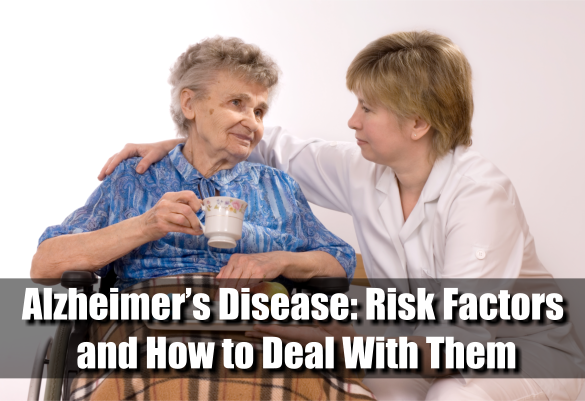Alzheimer’s is among the most common types of dementia, comprising to around 80 per cent of all dementia cases. It is recognized when the individual shows some problems in memory and thinking, resulting to some changes in behavior. When symptoms start to show, it progresses and ends up impeding daily functioning.
Risk Factors
-
Genetics – Although it is common in elderly people, Alzheimer’s, contrary to popular belief is not a necessarily a part of the aging process. In fact, some people at their 40’s and 50’s show some early symptoms. Aside from advance aging, there are other risk factors for Alzheimer’s and one of them is genetics. If one or both of your parents are suffering from the condition, there is chance that you might do the same. The chance is greater if there is more than one of your family members have Alzheimer’s.
-
Head Trauma – Through intensive study and research, experts have found out that there are other external risk factors that can affect one’s chance in having medical condition. For example, they have discovered a correlation between head trauma and Alzheimer’s. Those who have had severe head trauma can likely develop symptoms. The chance is greater for those who are experiencing the same trauma more often. This is why it is very important that you protect your head by making sure you wear seat belts or helmet when driving.
-
Conditions of the Heart – There have also been studies that show links between your heart’s performance and your brain’s activity. Put into consideration that the brain receives around 20 to 25 per cent of the blood that the heart pumps. This means that your brain utilizes around 20 per cent of the oxygen and food that can be found in your blood. It has been found out that the risk for having Alzheimer’s or other brain condition is greater if there has been damage in your heart or blood vessels. This tells us that medical conditions such as stroke, diabetes, heart disease, and so many others can actually have effects on the functioning of the brain.
-
Others – Other risk factors include lifestyle and health practices. For safety measure, it would be best if you watch your weight, minimize alcohol consumption, avoid smoking, and exercise regularly. Prevention is still the best cure. Having a healthy lifestyle will always reap great benefits in the end.
How to Take Care of Loved Ones With Alzheimer’s
If you have a loved one who is suffering from Alzheimer’s, you know how difficult it can be. Added to that is the fact that you don’t have time to take care of them as much as you want. If this is the case, there is nothing that you have to worry about. There are professionals who can help you with that.
Greenacres Adult Day Care is a facility where your loved one can be taken care of. We have staff that have been trained and educated to provide care for the elderly who are suffering from conditions such as Alzheimer’s. As a respected adult day care center in Greenacres Florida, we always make sure that we are able to make a difference in our clients’ lives. This is why we give them only the best and most genuine care.
Our main goal is to help adults improve in their daily lives. This is the main reason why we hold activities that can strengthen their mental, physical, and emotional help. Among the fun activities that we hold are mental stimulation games. In diseases like Alzheimer’s, it is very important that the brain is kept at work. The more stimulated the brain is, the better. We also have discussion groups where adults can chance to talk about their interests. This is a great way for them to socialize with others.
Greenacres Adult Day Care center offers services in several areas in Florida such as West Palm Beach, Wellington, Lakewood, and Royal Palm Beach. If you are anywhere near these areas, please give us a call at 941-786-6786. You can also visit our website www.greenacresadultdaycare.com, where you can easily fill out a form to express your concerns.




